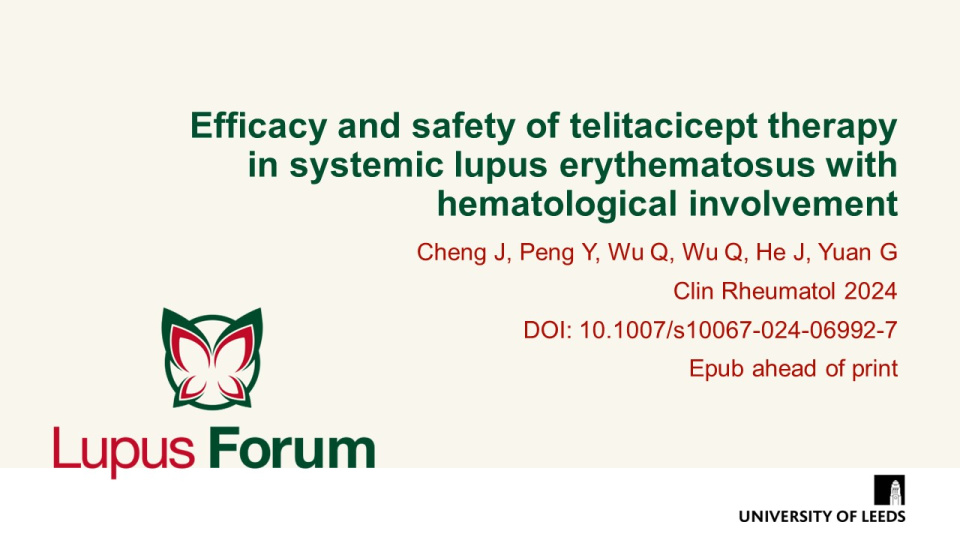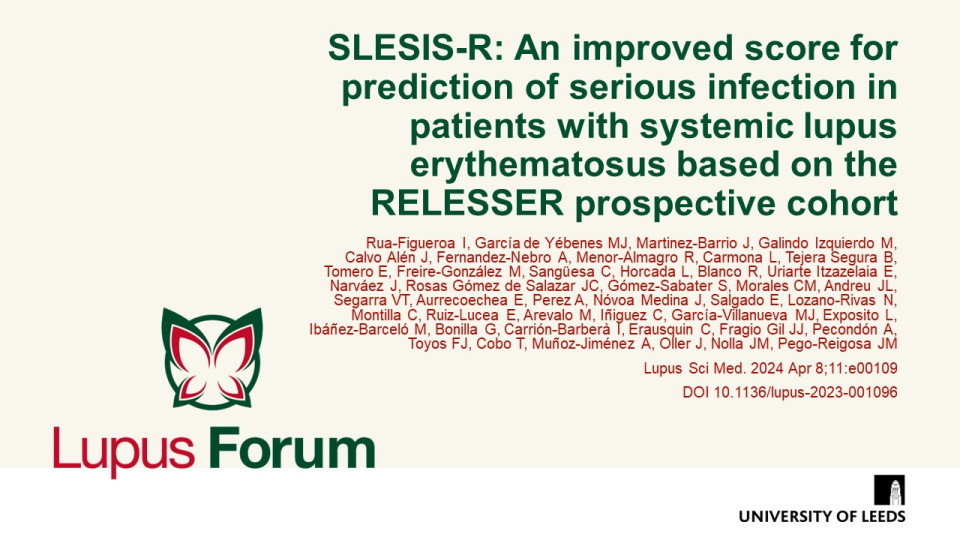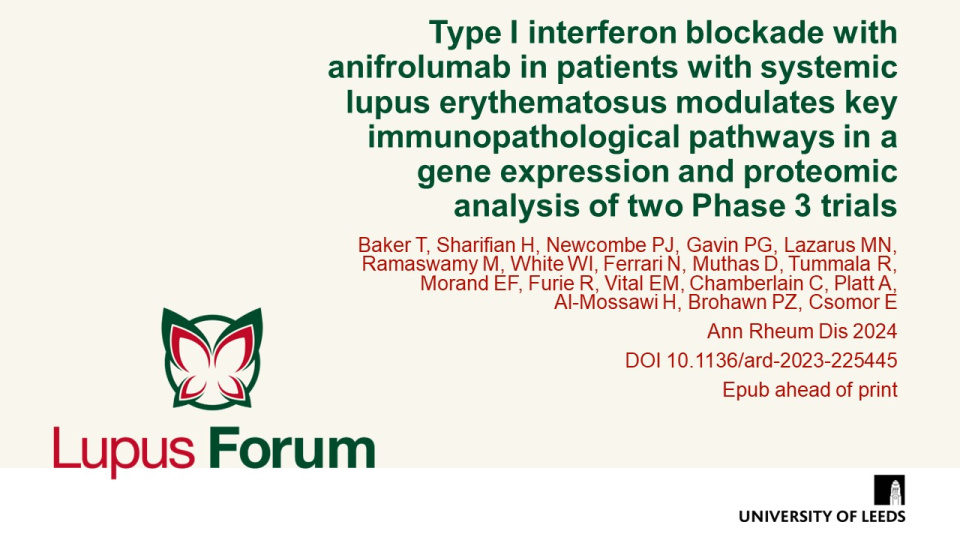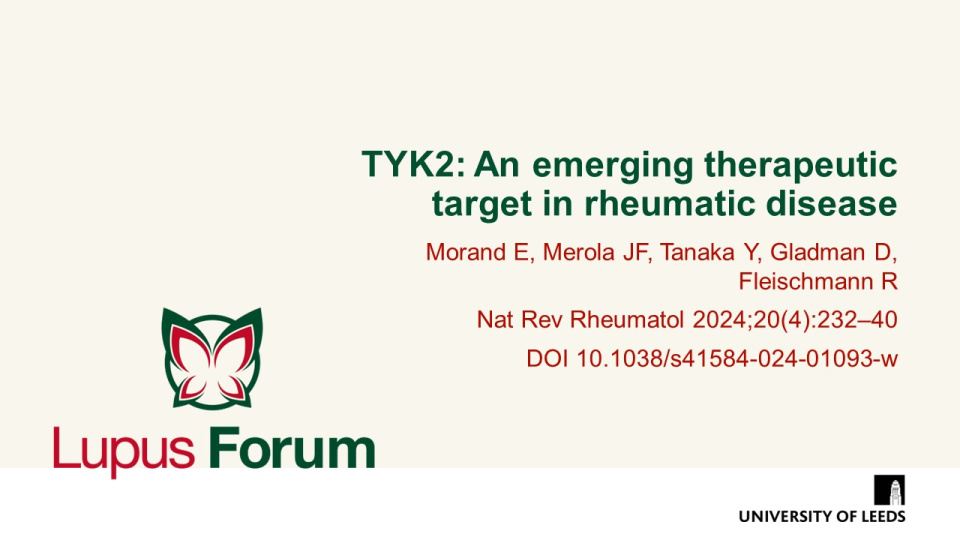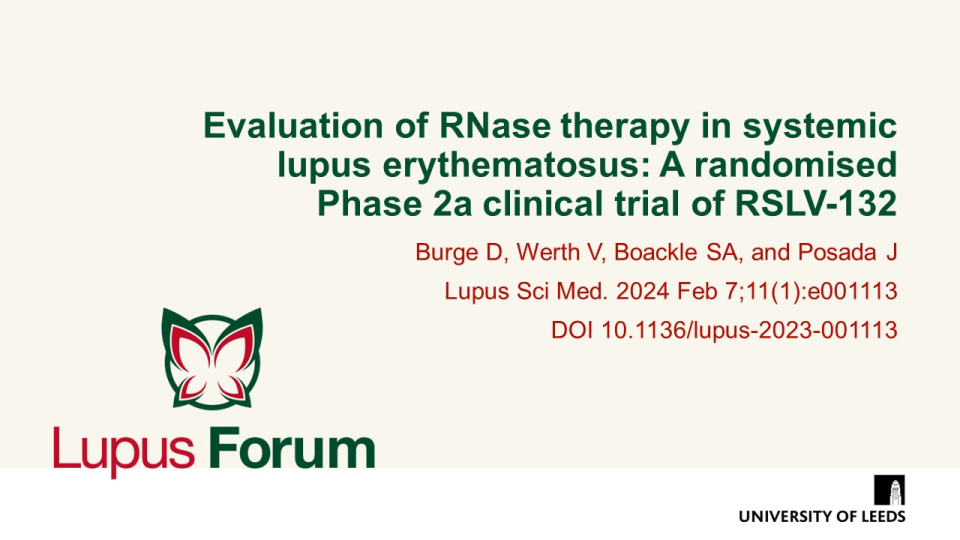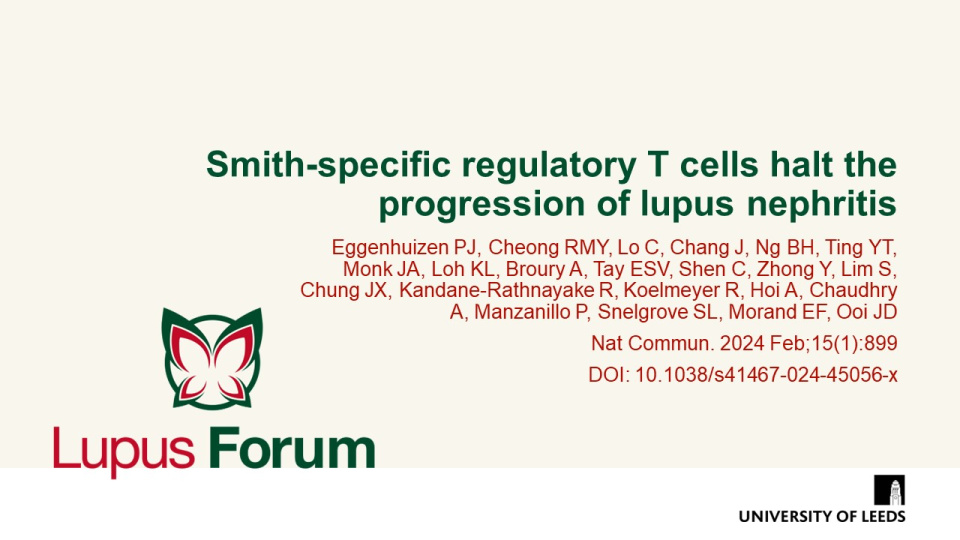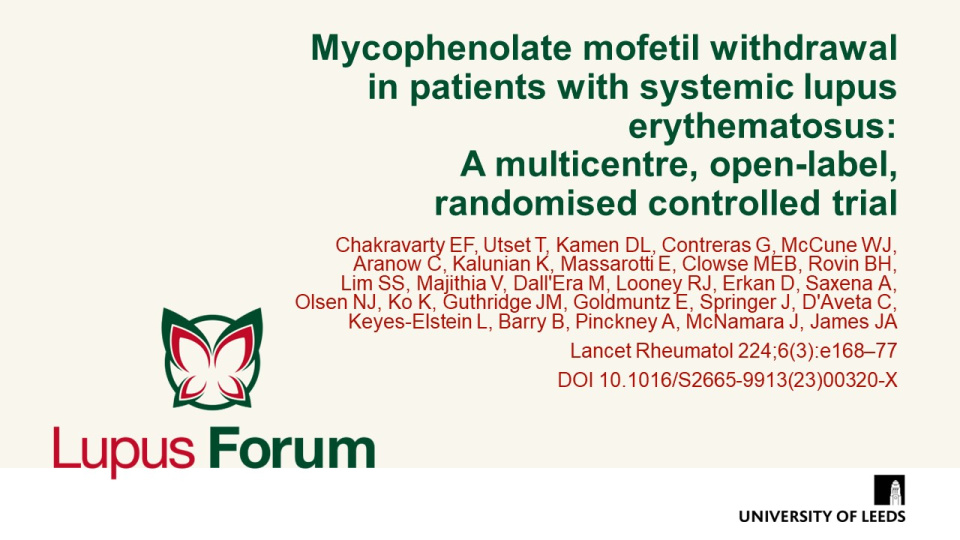Publications
Find coverage of the latest original articles on Lupus, focusing on those with data on therapeutic interventions and those that have clinical impact.
Combination of anti-SSA/Ro60 and anti-dsDNA serotype is predictive of belimumab renal response in patients with lupus nephritis
Lupus Sci Med. 2024 May 28;11(1) doi: 10.1136/lupus-2024-001156
The combination of anti-dsDNA and anti-SSA/Ro60 serotype may help to foretell the patient’s renal response to belimumab. Investigators here aimed to explore the effectiveness of belimumab on active LN, exploring predictors, including serological biomarkers, of renal response to belimumab in a real-world setting.
Keywords:
Efficacy and safety of telitacicept therapy in systemic lupus erythematosus with hematological involvement
Clin Rheumatol. 2024 May 20 doi: 10.1007/s10067-024-06992-7. Epub ahead of print
This real-world combination of telitacicept and standard treatment demonstrated significant improvements in anaemia, as well as increased leukocyte and platelet levels in patients with SLE and haematological involvement. Here, investigators sought to evaluate the efficacy and safety of telitacicept in combination with standard treatment in SLE patients specifically with haematological involvement.
Keywords:
ANA-associated arthritis: clinical and biomarker characterization of a population for basket trials
Rheumatol 2024 2024;00:1–11 DOI 10.1093/rheumatology/keae269
Arnold et al. assessed musculoskeletal (MSK) inflammation in ANA-associated rheumatic diseases (RMDs) and redefined ANA-associated arthritis into two distinct multi-disease clusters based on disease activity, which may support a more targeted approach to treatment. The authors confirmed that MSK inflammation is a key feature across diagnoses and responded similarly to treatments.
Keywords:
SLESIS-R: an improved score for prediction of serious infection in patients with systemic lupus erythematosus based on the RELESSER prospective cohort
Lupus Sci Med. 2024; 11(1): e001096 DOI: 10.1136/lupus-2023-001096
SLESIS-R may help clinicians make informed decisions on the occurrence of a serious infection in the following year in SLE from four variables: age ≥60 years, previous admission for SLE, previous infection and having received a maximum dose of glucocorticoids ≥30 mg.
Type I interferon blockade with anifrolumab in patients with systemic lupus erythematosus modulates key immunopathological pathways in a gene expression and proteomic analysis of two Phase 3 trials
Ann Rheum Dis 2024 DOI 10.1136/ard-2023-225445 Epub ahead of print https://pubmed.ncbi.nlm.nih.gov/38569851/
Type I IFN blockade with anifrolumab modulated multiple inflammatory pathways downstream of type I IFN signalling.
TYK2: An emerging therapeutic target in rheumatic disease
Nat Rev Rheumatol 2024;20(4):232–40 DOI 10.1038/s41584-024-01093-w
TYK2 inhibitors hold promise for the treatment of a distinct spectrum of autoimmune diseases, including SLE, and could potentially have a safety profile that differs from other JAK inhibitors.
Cardiovascular risk factors and complications in patients with systemic lupus erythematosus with and without nephritis: A systematic review and meta-analysis
Lupus Sci Med 2024;11(1):e001152 DOI 10.1136/lupus-2024-001152
Patients with SLE and LN show increased risk of CV risk factors including diabetes mellitus, hypertension and hyperlipidaemia versus patients without nephritis.
Evaluation of RNase Therapy in Systemic Lupus Erythematosus: A Randomised Phase 2a Clinical Trial of RSLV-132
Lupus Sci Med. 2024;11:e001113 DOI 10.1136/lupus-2023-001113
Treatment with RSLV-132 was associated with lower rates of SAEs than placebo, although RSLV-132 therapy was not associated with a significant improvement in the mean CLASI score relative to placebo. However, results suggest that further evaluations of RSLV-132 in SLE should be undertaken with patients with more active disease who are most likely to benefit from RNase therapy.
Smith-specific regulatory T cells halt the progression of lupus nephritis
Nat Commun. 2024 Feb 6;15(1):899 DOI: 10.1038/s41467-024-45056-x
Compared with polyclonal mock-transduced regulatory T cells (Tregs), Smith(Sm)-Tregs potently suppress Sm-specific pro-inflammatory responses in vitro and suppress disease progression in a humanised mouse model of lupus nephritis.
Keywords:
Mycophenolate mofetil withdrawal in patients with systemic lupus erythematosus: A multicentre, open-label, randomised controlled trial
Lancet Rheumatol 224;6(3):e168–77 DOI 10.1016/S2665-9913(23)00320-X
Mycophenolate mofetil (MMF) withdrawal was not significantly inferior to MMF maintenance through Week 60 in patients with SLE that had been treated with MMF for ≥1 year.



